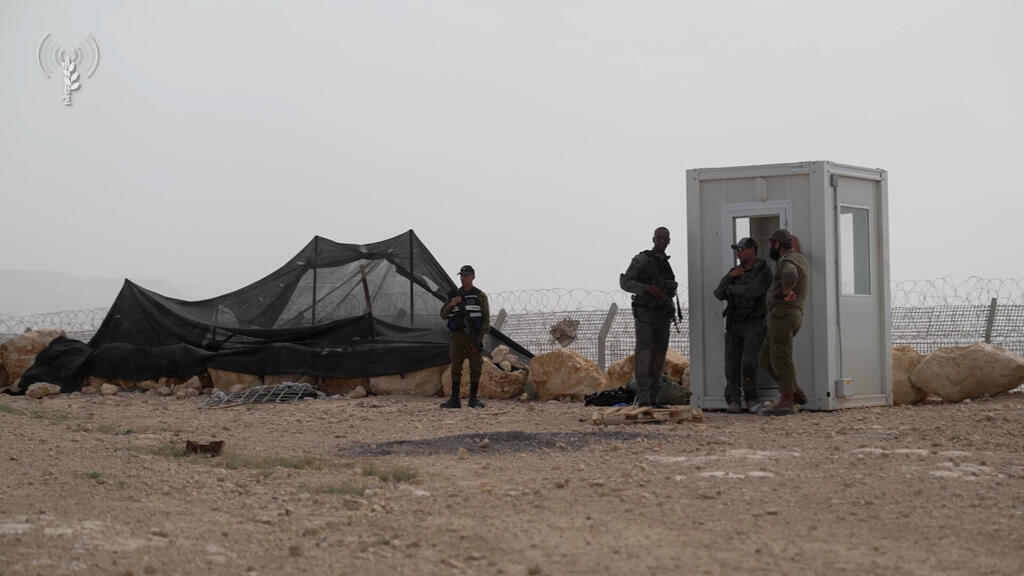Getting your Trinity Audio player ready...
A thorough investigation is required following the tragic incident that occurred at the Egyptian border, resulting in the loss of three brave soldiers: Sergeant Lia Ben-Nun, Staff Sergeant Ori Yitzhak Illouz, and Staff Sergeant Ohad Dahan.
Read more:
The flaws exposed in this incident highlight significant concerns about the performance level within the forces and the need for stricter oversight of command ranks.
2 View gallery


Staff Sergeant Ohad Dahan, Staff Sergeant Ori Yitzhak Illouz and Sergeant Lia Ben-Nun
(Photo: IDF spokesperson, TikTok)
However, it is important to acknowledge that, upon receiving reports from the Intelligence Branch and the brigade commander regarding the infiltration incident, immediate action was taken to neutralize the terrorist involved.
The notion that the border's 143-mile expanse inherently implies a lower level of alertness is completely unfounded. Nightly infiltrations, adrenaline-fueled pursuits entailing gunfire targeting drug smugglers and combatants, dominate this area.
The operational intensity experienced there surpasses that of other sectors, such as Gaza and Lebanon. Although these regions may witness more sporadic incidents, instances of infiltration occur less frequently within them.
Routinely, several brigades monitor the area, as it is notorious for drug smuggling operations and other nefarious activities, and those are assigned with providing the appropriate solutions amidst some complicated challenges on a border shared with a nation Israel is at peace with.
Yesterday, the Israeli defense system suffered a plain and simple collapse. This should never have occurred. It is imperative that this incident receives the utmost attention from the highest levels of the IDF, Defense Minister Yoav Gallant, and Prime Minister Benjamin Netanyahu.
While they are swift to discuss potential attacks on Iran, it is crucial for them to prioritize assessing the readiness of the ground forces.
In the course of the investigation, a drug smuggling operation was successfully thwarted at 02:30 in the morning. Preparations had begun earlier, with forces deployed in pairs in a makeshift tent as early as 21:00 in the evening.
The IDF acknowledges the use of paired forces as a response to limited manpower. Notably, the assailant did not breach or climb over the fence but rather exploited an emergency crossing intended for the movement of forces to the Egyptian side of the border when required.
IDF leadership on scene of attack
(Footage: Roi Idan, IDF spokesperson)
Around 04:15 AM, the last communication with the two soldiers at their post occurred. As the clock neared 09:00, a the two soldiers' lifeless bodies were discovered. Caught off guard, the soldiers had no opportunity to counter the assailant who shot them.
It was a drone's keen eye that first detected the terrorist's presence, about a mile deep into Israeli territory. The drone's revelation set the stage for intense clashes and exchanges of gunfire. Beyond the evident shortcomings in preventing the infiltration, there were clear deficiencies in the execution of the operation.
The assailant distanced himself nearly two kilometers from the border, heading towards an area where several commanders had gathered. Brigadier General Cohen requested air support, but it became apparent that the combat helicopters would take some time to arrive.
Faced with the situation, he decided to advance and close in on the terrorist without their assistance. Meanwhile, during this time, the assailant managed to kill Staff Sergeant Ohad Dahan. Eventually, the counterterrorism unit stormed in until the terrorist was neutralized.
This morning, IDF Spokesperson Brigadier General Daniel Hagari stated that despite the setback, the combat helicopter system remained operationally ready.
Last Wednesday, the IDF spokesperson announced the temporary grounding of the system following an unusual technical finding during routine maintenance inspection of an Apache helicopter.
It was also reported that a problem was detected with the engine's rotator blades during a routine check on one of the helicopters. Consequently, a full grounding of the helicopters was decided upon, affecting both operational activities and preparedness.
The IDF is investigating why the infiltration was not detected by the surveillance system and why hourly contact checks with the soldiers were not conducted.
Could the Air Force have arrived earlier and should it have? Was the decision by the brigade commander to launch the operation before the arrival of air support, in order to prevent harm to civilians, the right one? Or should they have waited and isolated the assailant until the combat helicopters arrived?
It seems some procedural lessons would have to be taught in order to prevent a reoccurrence.
While this isn't the first time hostile infiltration into Israeli has happened (back in March a Hezbollah-sanctioned terrorist penetrated from the Lebanese border and was neutralized only after making his way 43 miles into Israel), this time we're talking about a lone Egyptian officer who single-handedly managed to embarrass the IDF despite its immense technological prowess.





